Can a Handyman Do Electrical Work? What Homeowners Must Know (Legally & Safely)

When a light fixture flickers or an outlet stops working, many homeowners wonder: "Can I hire a handyman for this?" The answer depends on state laws, safety codes, and the job's complexity. While handymen are great for general repairs, electrical work comes with legal restrictions and safety risks. One wrong wire could lead to fires, failed inspections, or even voided insurance claims - making it crucial to know the limits before hiring.
So what's the real deal? A handyman can handle minor electrical tasks like swapping light fixtures or replacing outlets, but major jobs (rewiring, panel upgrades, or new circuits) absolutely require a licensed electrician. Let's break down exactly what a handyman can (and can't) legally do in your state - plus how to hire the right pro without compromising safety or breaking the law.
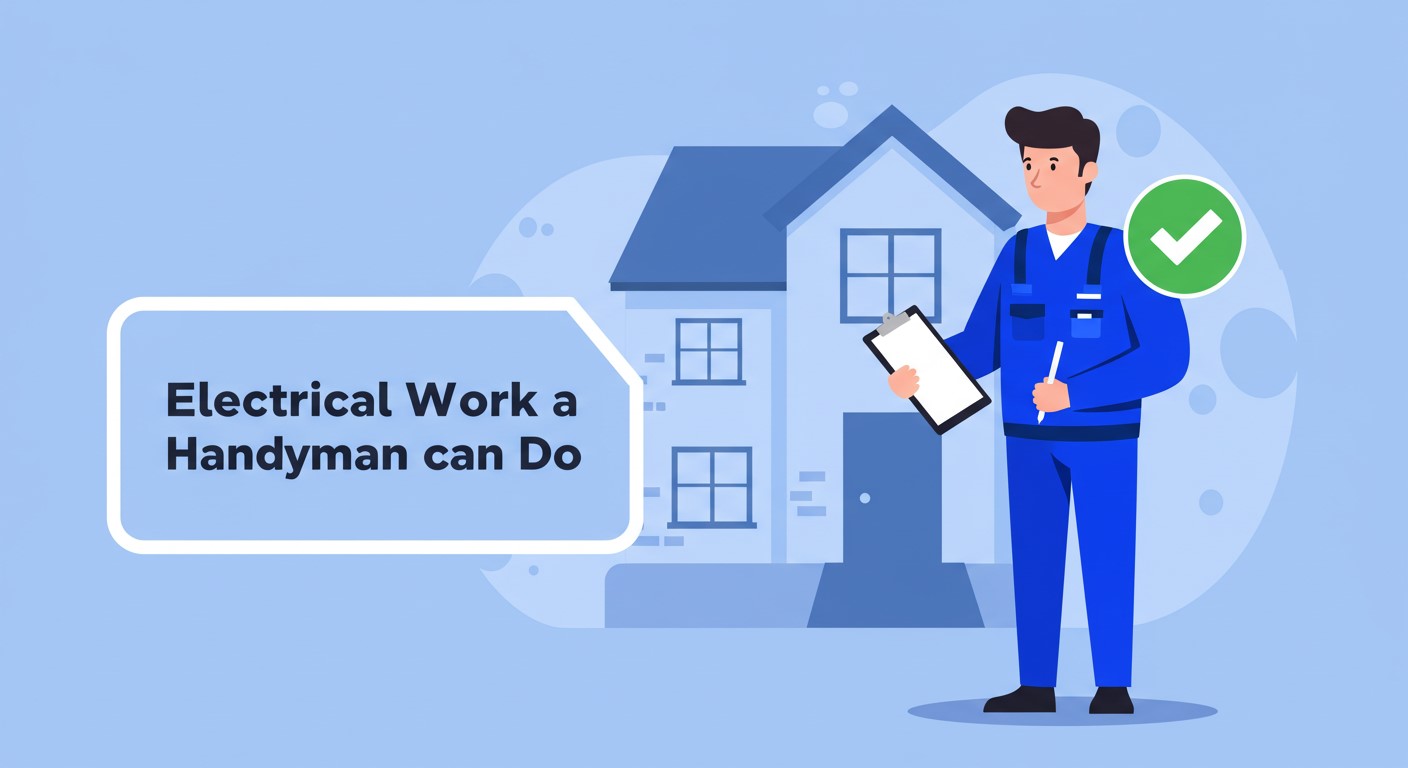
What Electrical Work Can a Handyman Legally Do?
Handymen can handle minor, non-structural tasks, but only if local laws allow it. Examples:
✅ Permitted Tasks (Typically)
- Replacing light fixtures – Swapping existing fixtures if no new wiring is needed (International Association of Electrical Inspectors).
- Installing ceiling fans – Only if an approved electrical box already exists (NEC Section 314.27).
- Replacing outlets/switches – Standard swaps are usually fine, but GFCI outlets may require a license in some states (e.g., California CSLB.ca.gov).
- Installing doorbells & smart devices – Low-voltage systems (like Ring doorbells) often don't need a license.
- Troubleshooting dead outlets – But not repairing frayed wiring or overloaded circuits.
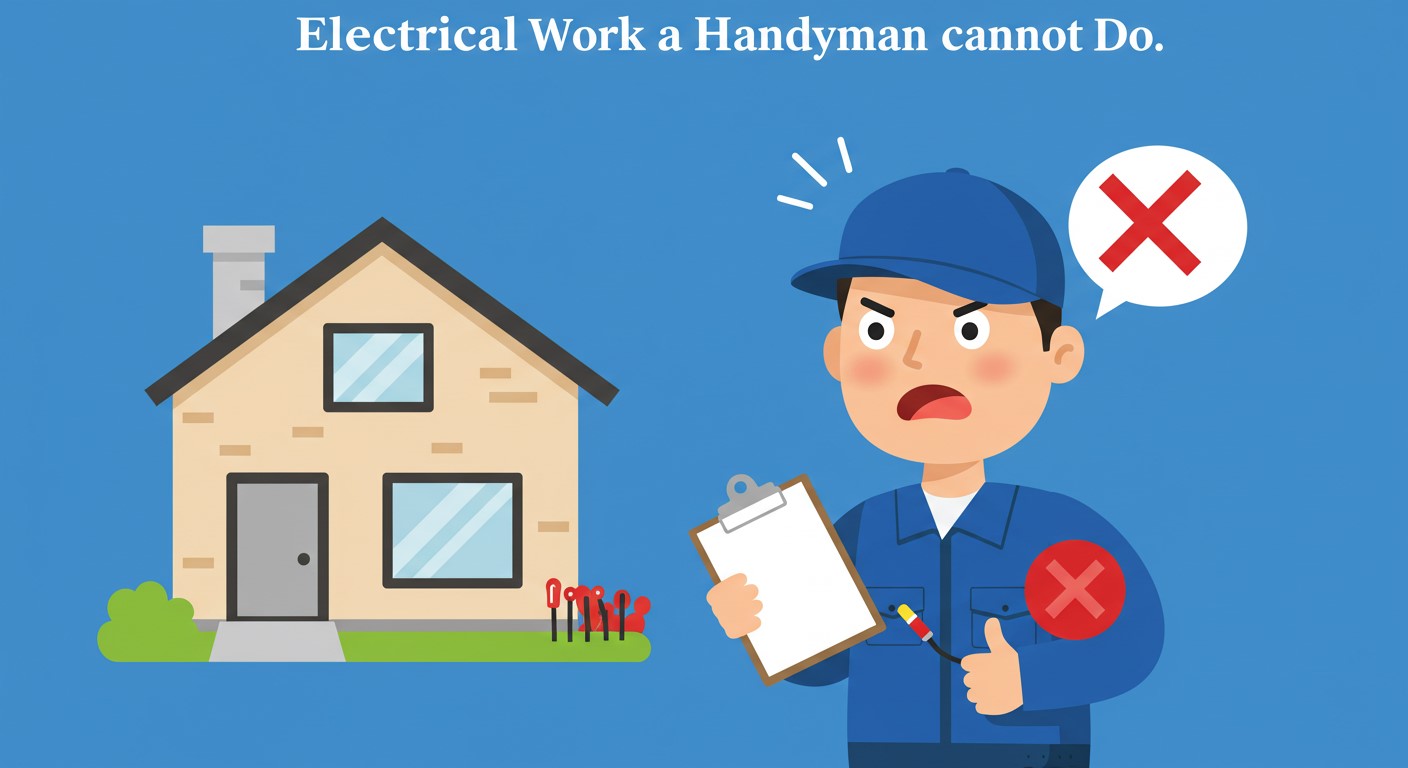
Electrical Work a Handyman CANNOT Do (Legally)
❌ Prohibited Tasks (Without a License)
- Rewiring a home – Requires an electrical permit and licensed electrician (NEC 210.12).
- Upgrading electrical panels – Tampering with breakers or panels risks fire hazards and voided insurance (ESFI.org).
- Running new circuits – Adding wiring for a new appliance (e.g., dryer, HVAC) is illegal without a license.
- Installing outdoor lighting with new wiring – Exterior work often requires inspections.
Handyman vs. Licensed Electrician: Key Differences
| Factor | Handyman | Licensed Electrician |
|---|---|---|
| Training | General repair skills | 4+ years apprenticeship + state exam |
| Legal Scope | Minor fixes (varies by state) | Full wiring, panels, and inspections |
| Insurance Coverage | May not cover electrical mistakes | Bonded & insured for liability |
| Cost | $50–$150/hour (cheaper) | $75–$200/hour (but safer) |
5 Rules for Hiring a Handyman for Electrical Work
- Check State Laws – Search "[Your State] handyman electrical license" (e.g., Texas TDLR).
- Verify Insurance – Ask for proof of general liability coverage (at least $500K).
- Ask for References – Request photos of past electrical jobs.
- Avoid Cash Deals – Unlicensed handymen often work "under the table," leaving you liable.
- Permit Awareness – If the job needs a permit (like a new circuit), only an electrician can pull it.
FAQ: Quick Safety & Legal Answers
A: No—unless it's a direct replacement with no wiring changes (NEC 422.13).
A: Your homeowner's insurance may deny claims for electrical fires (III.org).
A: Never—this is illegal in all states and risks electrocution.
Final Verdict: When to Call a Pro
A handyman is fine for simple swaps (like-for-like fixtures/switches). But for:
- New wiring
- Panel upgrades
- Permit-required jobs
Always hire a licensed electrician. Cutting corners could cost you $10,000+ in fire damage—or worse.
15 Essential FAQs About Handyman Electrical Work
It depends on state laws. Most states allow minor work (like replacing fixtures), but major tasks (rewiring, panel upgrades) require a licensed electrician. Check your state's licensing board (e.g., CSLB in California).
Electricians complete 4+ years of training, pass state exams, and carry specialized licenses. Handymen offer general repairs but lack certification for complex electrical work (BLS.gov).
Yes, if there's an existing electrical box. Running new wiring requires a licensed electrician (NEC 314.27).
Usually yes for like-for-like swaps, but installing GFCI outlets may require a license in some states (NEC 406.4).
No. Rewiring requires permits and a licensed electrician to meet NEC safety standards.
Never. This is illegal in all states and poses severe fire/electrocution risks (ESFI.org).
Only if no new wiring is needed. Otherwise, an electrician must handle it (NEC 410.117).
- Panel upgrades
- New circuit installations
- Whole-house rewiring
- Service line repairs
Only if it plugs into an existing outlet. Hardwiring requires an electrician (NEC 422.16).
Yes, if it's a low-voltage system (no wiring changes). For high-voltage systems (e.g., baseboard heaters), hire an electrician.
Risks include:
- Fines (up to $5,000+ in some states)
- Voided homeowners insurance
- Failed home inspections when selling
| Task | Handyman Cost | Electrician Cost |
|---|---|---|
| Replace outlet | $50-$150 | $100-$250 |
| Install ceiling fan | $75-$200 | $150-$400 |
| Troubleshoot wiring | $80-$120/hour | $100-$200/hour |
Source: TaskRight Handyman
Only if using plug-in or solar lights. Hardwired fixtures need an electrician due to weatherproofing codes (NEC 410.10).
Yes. General liability insurance ($500K+) is critical. Ask for proof before hiring (III.org).
Search your state's licensing board (e.g., Texas TDLR, Florida DBPR).
Zohaib M.

Decoding the Home Repair Dilemma: DIY Mastery vs. Calling the California Handyman Experts
Decoding the Home Repair Dilemma: DIY Mastery vs. Calling the California Handyman Experts | TaskRight Handyman Need a Handyman? Get a Free Quote! Decoding the
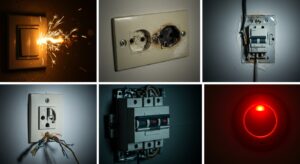
10 Warning Signs Your Home Needs Electrical Repairs Immediately
10 Warning Signs Your Home Needs Electrical Repairs Immediately | TaskRight Handyman 10 Warning Signs Your Home Needs Electrical Repairs Immediately Introduction: Why Electrical Safety
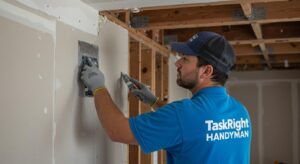
Drywall Repair 101: How to Patch Holes, Cracks, and Dents Like a Pro
Drywall Repair 101: How to Patch Holes, Cracks, and Dents Like a Pro Drywall Repair 101: How to Patch Holes, Cracks, and Dents Like a

The Ultimate Home Maintenance Checklist – Seasonal Tasks Every Homeowner Should Know
Ultimate Home Maintenance Checklist The Ultimate Home Maintenance Checklist – Seasonal Tasks Every Homeowner Should Know Introduction Taking care of your home throughout the year

Handyman Price List 2025: How Much Does a Handyman Cost?
2025 Handyman Price Guide: California Service Costs & Estimates | TaskRight Handyman 2025 Handyman Price Guide: How Much Do Home Repairs Cost in California? Planning
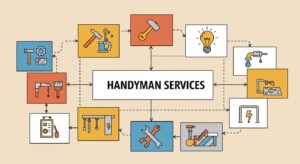
The Ultimate Handyman Services List: 25+ Essential Home Repairs & Upgrades
The Ultimate Handyman Services List: 25+ Essential Home Repairs & Upgrades What Does a Handyman Do? Handymen handle a variety of home repairs, maintenance, and
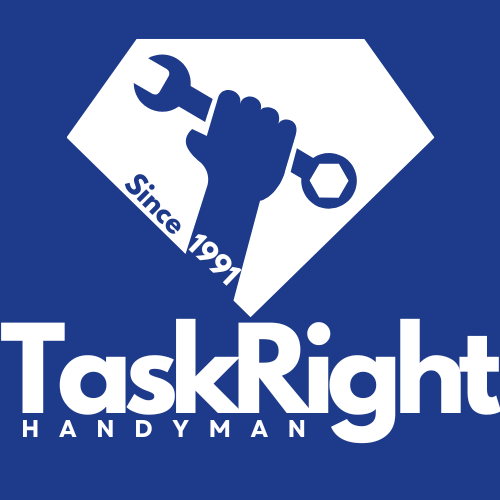
One Response